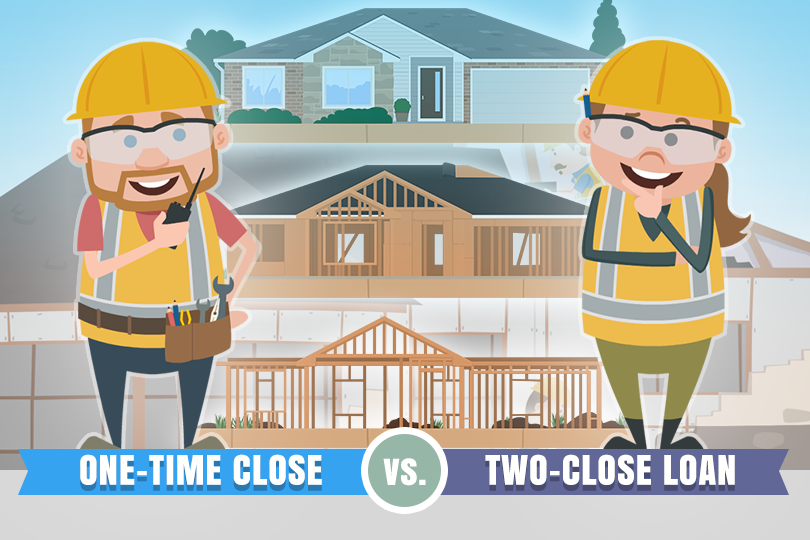One-Time Close Construction Mortgages vs. Two-Close Loans
May 20, 2023
The FHA One-Time Close loan is the mortgage you want to build a home from the ground up instead of buying someone else’s dream home.
But you will want to address some issues comparing construction loan options. It’s true that some lenders still offer the riskier two-close construction loan with two applications, two closing dates, and two different interest rates for the two loans.
Why go with a single close construction loan? The most obvious answer is that getting through the approval process for a single mortgage is a lot better for most applicants.
But that aside, FHA One-Time Close construction loans feature a single interest rate, and that rate is typically offered for a 30-year, fixed-interest mortgage. It is not a variable or adjustable interest rate loan.
A single-close or One-Time Close loan process has the interest rate is set before construction and the permanent loan interest rate is also pre-determined for a surprise-free experience. Compare that to the experience a borrower may have during the more complicated two-close construction loan.
In those cases, a loan for the construction phase of the process may be offered strictly as an adjustable-rate loan. A fixed interest rate is offered for the permanent loan (the second one), which is the mortgage.
Application time is tricky for two-close loans. You get no guarantees that you definitely will qualify both times for the two loans. What could go wrong between the first and second applications?
Consider the borrower who has credit problems after the construction loan is approved. If they get the construction loan but not the permanent loan, there are obvious problems that happen as a result. The danger of being approved once, but not twice is enough to make some reconsider a two-close construction loan even if they are offered more competitive interest rates than a One-Time Close mortgage.
There are ways to manage the higher interest payments. one way is to divide your monthly payment in half and pay the same mortgage amount, but in two installments each month.
Paying this way means you will make an extra mortgage payment each year without having spent any extra money, and that can go a long way toward helping you save money over the full term of the mortgage.
------------------------------
RELATED VIDEOS:
What You Need to Know About the Appraisal Fee
The Appraisal is an Important Requirement
Build Your Dream Home With a One-Time Close Loan

FHA Loan Articles
March 25, 2025What does it take to sell a house purchased with an FHA mortgage? Are there special rules, restricrtions, or added considerations? We examine some key questions and their answers to FHA real estate sales issues.
March 24, 2025If you are selling a home, you may need to negotiate with buyers to fund their purchases with an FHA mortgage. What do you, as a seller, need to know about FHA mortgages and how they may differ from conventional loans? We examine some common issues.
March 24, 2025How much do you really know about how FHA home loan interest rates are set and what factors influence them before your lender makes you an offer? We explore some key points about FHA loan rates, FICO scores, and debt ratios.
March 11, 2025Adding a co-borrower to your FHA is a way to offset fears that you won't qualify for the mortgage on your own. An FHA loan co-borrower with a more substantial financial profile may offset the primary borrower's weaknesses, demonstrating a reduced risk to the lender. But for an FHA loan, don't assume that one borrower with good credit scores can offset one with non-qualifying scores. We ask 20 questions about co-borrowing to help you better plan for your FHA loan.
March 10, 2025Even if you aren’t considering your home loan options right this second, it’s smart to know your options if you decide to pursue a new home later. To that end, using a mortgage calculator is a smart choice for setting some basic budgeting parameters as you plan your path toward home ownership. A mortgage calculator helps you plan for future financial scenarios, such as buying new or refinancing a current home.







